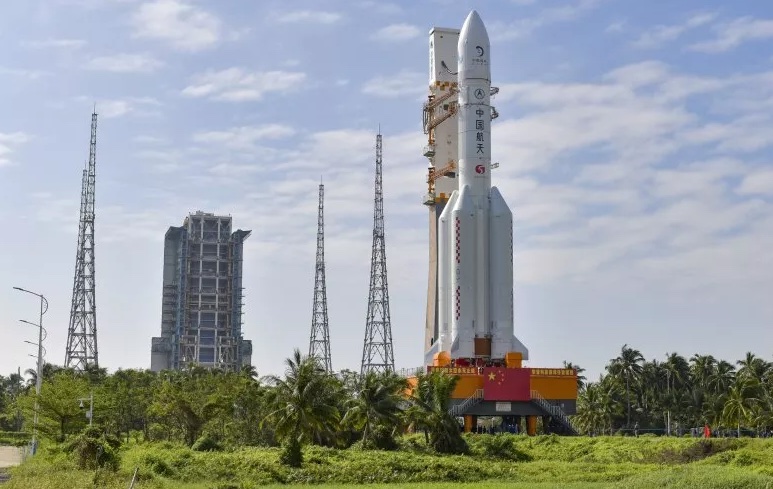| Issue December-7 | ||
 |  |
|
| ·Home ·Politics ·News ·Sport ·Life ·Culture ·World ·Essays ·About | ·Archive | |
| ||||||||||||||
 |
| Chinese media has called China's future lunar base with Russia a "perfect match" after Moscow approved the plan this week to take their "no-limits" partnership to the moon. The Russian Government Legislative Commission has given the go ahead for the ratification of an agreement signed by both countries last year to jointly work toward establishing a station. At presenet there are tensions between the two countries and the U.S., which also plans a return to the moon and beyond. Will this be a new space race? China and Russia announced they had reached a "no-limits" partnership just before Russian President Vladimir Putin ordered the invasion of Ukraine in February 2022. According to Chinese and Russian media the construction of the lunar base is expected to be completed in the 2030s. Officials with the U.S. space agency NASA have said they hope to have astronauts living on the moon for long durations already by 2030. The Russia-China project is designed to proceed in three stages. First, the two countries will explore Earth's natural satellite to determine the optimum site for the base. Next, they will set up a control center, begin delivering cargo, and install modules in orbit to provide power, transportation, and communications. Finally, they will explore the moonscape, further develop the modules, and bring people to the surface. The Global Times said the joint project would "greatly enhance the space exploration capabilities of both countries by leveraging their respective strengths, with China bringing abundant resources and skills while Russia contributes its expertise and innovative thinking." While the Soviet Union was an innovator decades ago during its space race with the U.S., the achievements of its successor the Russian Federation have been "relatively lackluster." This is where economically dominant China can step in, the tabloid said. China has closed much of the gap between its space industry and the U.S. In 2013, China became the third country to land a rover on the moon after the Soviet Union and the U.S. and seven years later, the Chinese rover Zhurong touched down on Mars. When announcing the planned project two years ago, the Global Times contrasted it with the U.S.-led Artemis Accords, which it said represents an "exclusive nature for mimicking a space-based NATO." The U.S. Department of State, which along with NASA launched the Artemis Accords, says they are guiding principles for civil space exploration signed by 32 countries. Though the International Lunar Research Station will be spearheaded by Russian state space organization Roscomos and the China National Space Administration, all interested parties have been invited to participate. So far, five other countries have signed onto the collaboration: South Africa, Venezuela, Azerbaijan, Pakistan, and Belarus. -pw- |
|